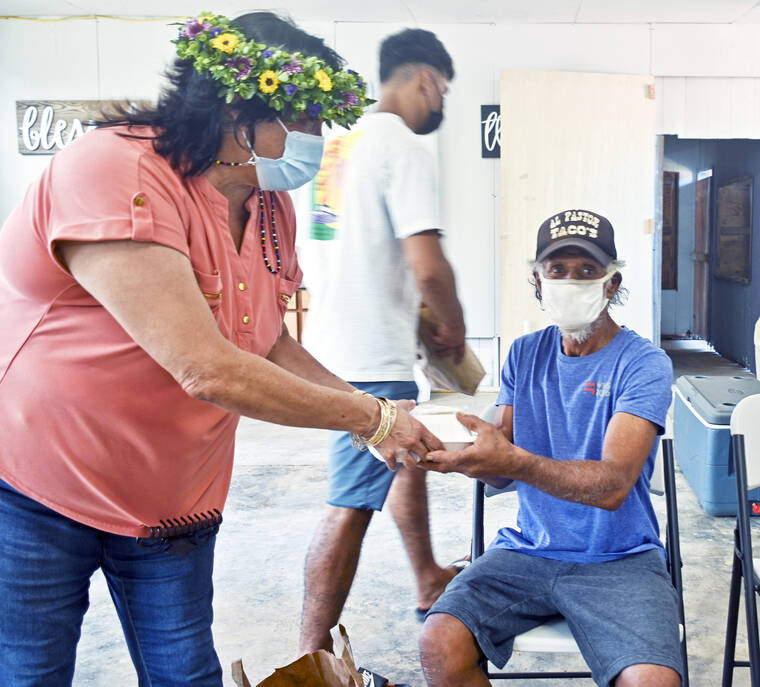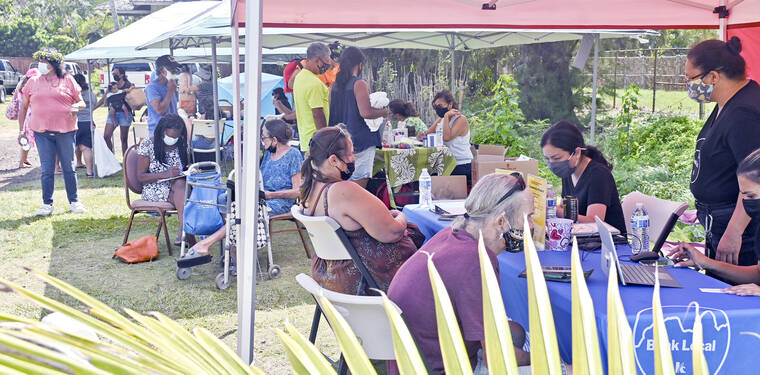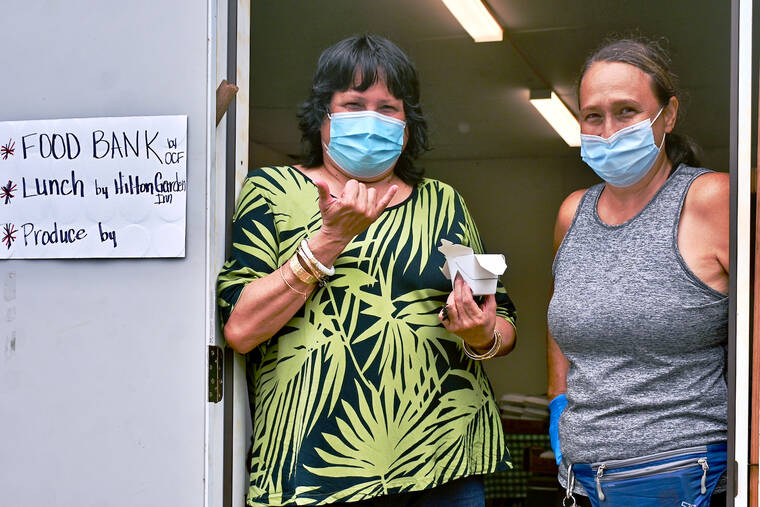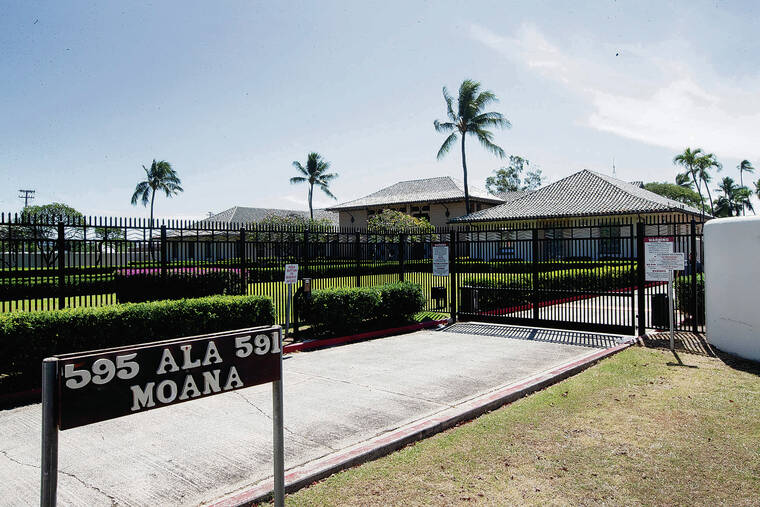WAILUA — A proposed state tax on home sales could generate millions in revenue for affordable housing and more than $2 million for homeless services on Kaua‘i.
Senate Bill 678, introduced by state Sens. Stanley Chang, Joy San Buenaventura and Angus McKelvey, would place the majority of the new tax burden on the most expensive home sales, particularly those being sold to off-island investors rather than home occupants.
Under the bill, the conveyance tax on homes valued at more than $10 million would increase from 1 percent to 6 percent of the sale price. Lower-value homes would see a much smaller bump, with the conveyance tax on homes worth between $200,000 and $600,000 increasing from 0.1 percent to 0.5 percent.
Half of the funding created would go to the state Rental Housing Revolving Fund, which subsidizes the production of affordable housing projects, including several on Kaua‘i. Another 30 percent would go to the General Fund, while 10 percent would go to the Land Conservation Fund, and 10 percent would fund homeless services and supportive housing.
Based on 2018 data, the progressive group Hawai‘i Appleseed estimated the tax would generate $174 million for affordable housing and $34.8 million for homeless services statewide, including $2.1 million for Kaua‘i. Considering home prices have skyrocketed since then, the actual amount of funding generated would probably be greater.
Kaua‘i homeless advocate Rowena Contrades-Pangan gathered 17 houseless local people at the Ho‘omana Thrift Shop in Kapa‘a last week to testify in favor of the measure before the Senate Committee on Housing.
But the bill was deferred before the group was able to speak. Now, Contrades-Pangan and other advocates are worried the bill may be shelved until next year.
Contrades-Pangan spoke with The Garden Island on Friday at a weekly gathering where she and allies provide food, showers and SNAP assistance to houseless people at her Ho‘omana Thrift Shop near the Wailua River. Programs like hers could be potential beneficiaries of the new stream of funds.
She said she has seen the houseless population grow on Kaua‘i since she began her program two years ago. While she initially would feed about 40 people a week, she now feeds more than 100.
“The reason I feel that it’s getting worse, is that the funds aren’t sufficient,” said Contrades-Pangan. “You have to be either damn poor to get help, or damn rich. You can’t be a middle-class person and get assistance.”
Andrew Denny was one of the houseless people who gathered to testify before the bill was deferred.
“I think that as a born and raised Kauaian, things have gotten out of control on the development side,” said Denny at Contrades-Pangan’s event. “The conveyance tax seems like a logical place to pull from.”
A military veteran, Denny now works as a taro farmer in Wailua. After his parents passed away, they lost their family home, and he is now living out of his car with his partner and their child.
“It just seems hopeless to rent here, so living the mobile, houseless lifestyle is really the only economically viable thing right now,” he said.
Denny said, if he were selling a second home, he would not mind paying a tax on the sale to fund homeless services.
“Maybe that’s the reason I’m not rich,” he said.
Nicky Winter, director of Achieve Zero, a group focused on ending homelessness, said at Ho‘omana on Friday that she thinks the housing crisis will get worse before it gets better.
“We still haven’t seen the full depth and breadth of impact because there are still people on subsidies. Once that stops, we’re going to get into a lot of trouble,” said Winter. “Our fixes and solutions are not growing with the problem.”
Many individuals and advocacy groups submitted testimony in support of the SB 678, including Kaua‘i nonprofit Permanently Affordable Living Kaua‘i.
The Commercial Real Estate Development Association of Hawai‘i was one of a handful of groups that submitted testimony against the measure, arguing it would disincentivize property sales and put a damper on economic growth.
“Hawai‘i is already rated as one of the least business-friendly states in the nation, and increasing this tax rate will further discourage much-needed investment here locally. Rather, additional efforts to encourage investment in Hawai‘i and incentivize the creation of new projects and businesses in Hawai‘i would stimulate our economy by creating jobs and tax revenue,” wrote organization President Jennifer Camp.
Though the measure is currently deferred, it can still be revived if state Senate President Ron Kouchi refers it to another committee.
Another measure increasing the conveyance tax, Senate Bill 362, did pass second reading in committee last week. However, it would not provide funds for homeless services and has a much smaller rate bump, increasing the tax on $10 million dollar properties from 1 to 2.5 percent and holding the rate for homes valued below $2 million steady.
•••
Guthrie Scrimgeour, reporter, can be reached at 808-647-0329 or gscrimgeour@thegardenisland.com.








Most, not all, but most of the homeless population are on some form of drugs or mentally ill. To take from those who are successful to provide housing is not normal. Hawaii is overpriced but to take from those who aren’t crooked or on drugs but work hard and are successful is typical from a democratic state. Yet we continue giving council and the mayor a raise. No offense but this is some small country behind place and they are extremely overpaid. To pay council that meets maybe once a week the salary of more than most of the population that holds a job is outrageous. Kauai will never get any better as long as this corruption continues.
Let’s see…If this bill passes, those who buy or sell for over $10million will get slammed.
Those selling for $200.000 to $600,000 less so.
Given that an average home on Kauai costs $1million, there appears to be quite a gap in figuring the conveyance tax on homes selling for between $600,000 and $10,000,000.
How about some clarification, Guthrie?
And you may also want to explain what happens to the conveyance tax money if Senate Bill 362 passes. Does that increase just go into the General Fund, and disappear into increased spending on things like pay raises for State employees?
Please consider fleshing out the entire story…
I am guessing a lot of people would gladly pay double that in taxes if it would really result in the homeless camps on our beautiful beaches going away. But… If someone buys a beach house here, pays all the taxes, and then is told there is nothing that can be done about the homeless camp in his front yard, they are not going to be rightfully upset.
I would pay more taxes to fix this, but got a feeling when you call the county about a homeless camp next door they will still say “no can, that’s a social issue” or call DLNR, or call the Mayor, or call Hawaiian homelands, or call the state, Police say call the county, Big mess. Gotta fix. Bet the mayor does not have a homeless camp in front of his house.
What a deal for “regular” home sales, you know the tax assessed on middle and low income people? They get to pay five times what is currently levied on their sales. Who needs a thief when your friendly government trolls take such good care of you?
Of course, the propaganda that this massive increase in taxes on ALL home sales/purchases will somehow help alleviate the “affordable” housing shortage is an absolute fraud. (it actually will further drive up the cost of buying a home, affordable or not)
I would hope that by now most people would be able to see that the political class and their ilk are THE very cause of high cost housing and rents. Why? because it is their obstructionist mindset, vicious land-use laws/regulations, and lobbying that severely restrict the supply of building lots…this is exactly what drives up the cost of homes, new and existing. Even someone with a rudimentary grasp of economics should recognize this. It’s a simple matter of supply vs. demand. Of course, the whining of “what about the environment” is coming from people who are already homeowners and couldn’t care less about our young and homeless who desperately need places to live…other than with their families or on the streets. Disgraceful.
Government should get out of the housing & land-use business and double down on what is perhaps their most important function…maintaining and building roadways that are safe and facilitate smooth flowing traffic at all times.
RSW
So you can’t afford a home on Kauai, but you were getting close to being able to do so. Now comes this proposed tax that has pushed your home buying budget farther away from reality. This is what liberal states do. They take your money to pretend to solve the problems they created from their failing policies, while they get richer. It’s done here in California all of the time. If you decide to be a drugged out person who feeds off of social programs while you also commit crimes, you are rewarded here in California. If you follow the laws and are a productive member of society, you are punished by having to pay for those who chose to live the parasite life. Wake up, Kauai!!! You are headed for doom as long as liberals continue to behave as if your money is theirs to take and spend how they want, while getting rich. Need an example? Look at California. Many thousands have left the state, and more are leaving each day.
To all the complainers about soaring housing costs that are somehow blamed on vacation rentals or out of state purchasers, NONE of you look to your own politicians to carry any responsibility in raising property taxes which do in fact increase housing costs. By the way, where is all the tax money going now that tourism is just a shade less than pre-pandemic levels? Your roads are junk, your parks are not well taken care of. Billions in tax money from tourism has been collected by the state. It’s past time you all ask your politicians where it is going BEFORE they choose to increase your property taxes even more.